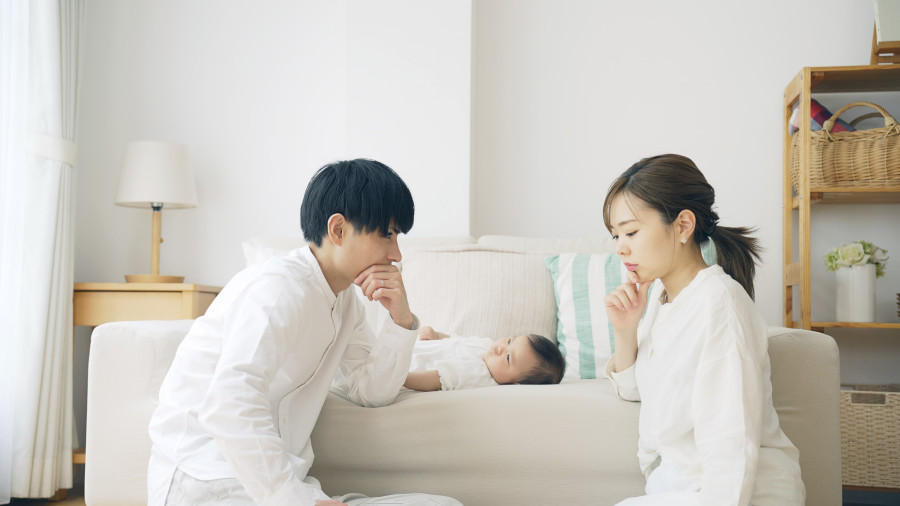Culture & Lifestyle
Breaking down parental anxiety
Sunika Joshi discusses anxiety among parents, its causes, effects and coping techniques.
Aarati Ray
Parental anxiety is the state in which parents worry about their children’s future, safety, or well-being more than is necessary.
Worrying is natural but it becomes problematic when it reaches excessive levels affecting the daily functioning of the parent. It can also cause persistent fear, uncertainty and intrusive thoughts about potential dangers or negative outcomes for their children.
Sunika Joshi, a mental health practitioner and a consultant and trainer at Mann ka Kura who has the expertise of nine years discusses parental anxiety, highlighting its causes, effects, and coping techniques.

What causes parental anxiety and how does it differ between parents of younger and older children?
Parental anxiety can stem from various sources, regardless of the age of the child.
I have seen that for parents of younger children, anxiety often revolves around basic needs such as feeding, sleep, and physical health.
As children grow older and start school, new concerns arise such as academic performance, and safety outside the home. Parents may worry about their child’s ability to make friends, cope with peer pressure and avoid bullying.
In addition, parents may have anxiety related to their choices as parents and worry that their inadequacies as carers will be reflected in their child’s life. This ongoing concern for their children’s physical, mental and social welfare can contribute to persistent parental anxiety.
Do parents of younger or older children experience more anxiety, and does it worsen as children grow?
I believe parental anxiety can't be generalised to one group having more than the other. It varies based on individual circumstances such as socioeconomic background and support systems.
Parents of younger children may worry about meeting basic needs, while those with older children may stress about supporting their education and careers.
Do parents’ negative experiences from their upbringing influence their parenting styles?
Yes, of course. Traumatic experiences from childhood, such as growing up in an environment of violence, addiction, neglect, or abuse, can greatly impact how individuals approach parenthood.
For parents who have experienced trauma or adverse childhood events, there may be a strong desire to compensate for what they lacked growing up. This can lead to overcompensating behaviours, such as being overly protective, or excessively attentive to their children’s needs. They may try to create a safe and nurturing environment for their children, sometimes to the point of becoming anxious or controlling.
How does parental anxiety impact parenting style and their relationship with children?
When parents are overwhelmed, they become hesitant to try new things and prefer to stick to familiar environments like home, limiting their children’s experiences. They also go through catastrophising anxiety, where parents imagine the worst outcomes, which further leads to overprotectiveness.
Overprotectiveness can affect children’s independence and decision-making abilities. Inconsistent emotional regulation by anxious parents may result in unpredictable behaviour, causing stress for children.
Anxious parents can become overly critical or strict in an attempt to gain control, straining the parent-child relationship and creating a tense home environment.
Fathers are often neglected in conversations about parental anxiety. Does this mean they don't experience parental anxiety?
Well, parental anxiety isn’t exclusive to mothers; fathers experience it too, though there's less research on it. Men often feel anxious during pregnancy, after childbirth, and as the child grows.
I have often seen fathers feel unsure about their role in caring for the child, bonding emotionally and participating in child rearing as fathers are most of the time expected just to be a ‘provider’ and society expects mothers to know everything about childcare.
Can parental anxiety lead to other mental health problems?
Yes. Prolonged parental anxiety can lead to depression, as parents may blame themselves if something goes wrong with their children. It can also trigger obsessive-compulsive tendencies, as individuals become fixated on worrying thoughts and feel compelled to worry constantly.
Is empty nest syndrome related to parental anxiety?
Empty nest syndrome isn’t a clinical diagnosis, we call it an emotional phase. It’s parents feeling sad, lonely and purposeless when their children leave home. Some parents feel this for a short time, while others feel it longer. If the feelings worsen and parents worry excessively about their children’s well-being, it can turn into parental anxiety.
Can parental anxiety lead to anger and violence?
Yes, it can because in our society, emotional regulation and communication are close to non-existent, and anxiety and stress may be expressed through anger and regression.
Research also suggests that parents experiencing anxiety and poor mental health may struggle with empathy, patience, and controlling their temper, leading to angry outbursts directed at their children as they struggle with their own anxieties and challenges.
How can children help parents suffering from parental anxiety?
Children can help their parents by learning about their mental health and understanding them better. They can also encourage self-care practices at home and ask their parents what helps them feel better. As they demonstrate their concern and awareness of their parents' emotions, communication becomes crucial.
In Nepali families, we should talk more about mental health and share our feelings. It doesn't always have to be serious; we can talk about it casually during meals or other family gatherings.
How can parental anxiety be effectively managed?
I would say please recognise what makes you feel stressed and take steps to relax, like exercising or talking to someone you trust. Learn to set boundaries and say no to extra tasks that add to your worries.
Please create your support system and circle.
Practice mindfulness techniques like deep breathing or meditation to stay calm. Stick to routines to create a sense of stability for yourself and your children.




 9.7°C Kathmandu
9.7°C Kathmandu

.jpg&w=200&height=120)













